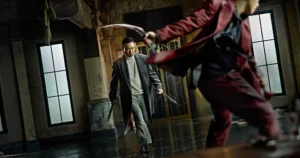Summary
The truth about The Truth is Kore-eda’s film only goes as deep as the shallow and vain mindset of the Fabienne character, which limits its impact.
Hirokazu –
d
sci-fi
hardly break and that wasn’t
whole the r created a distinct look and feel that needed to go deeper.



